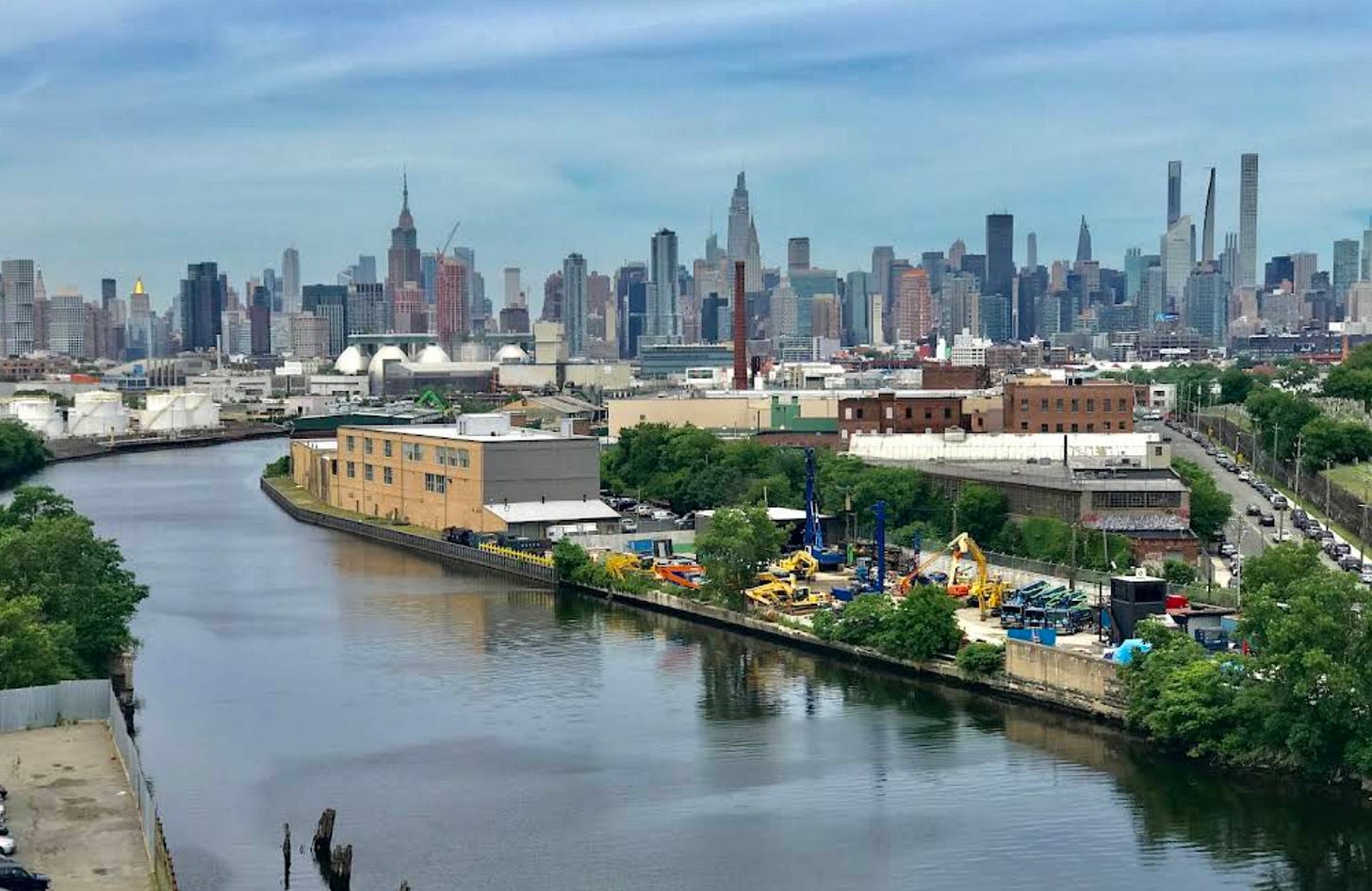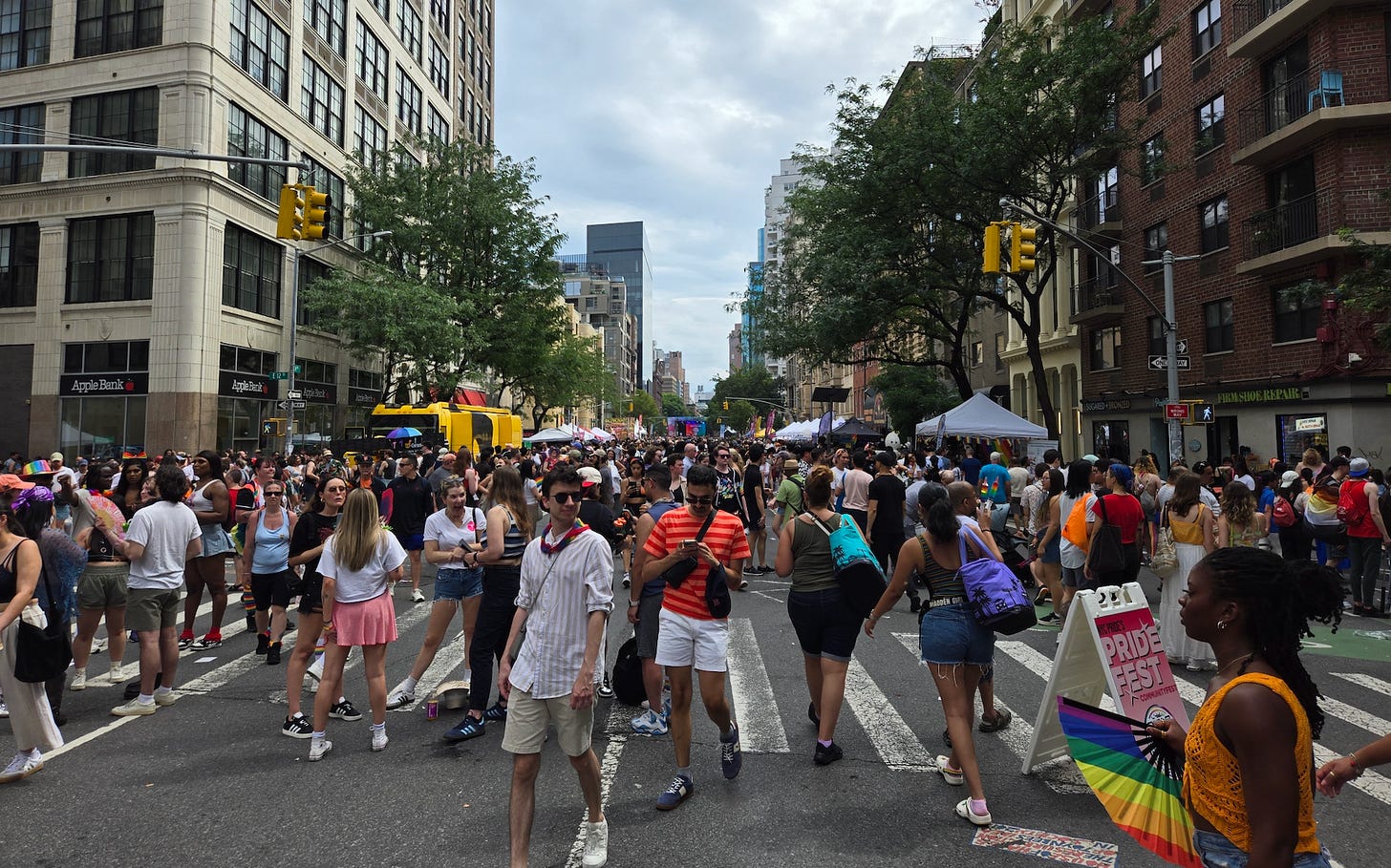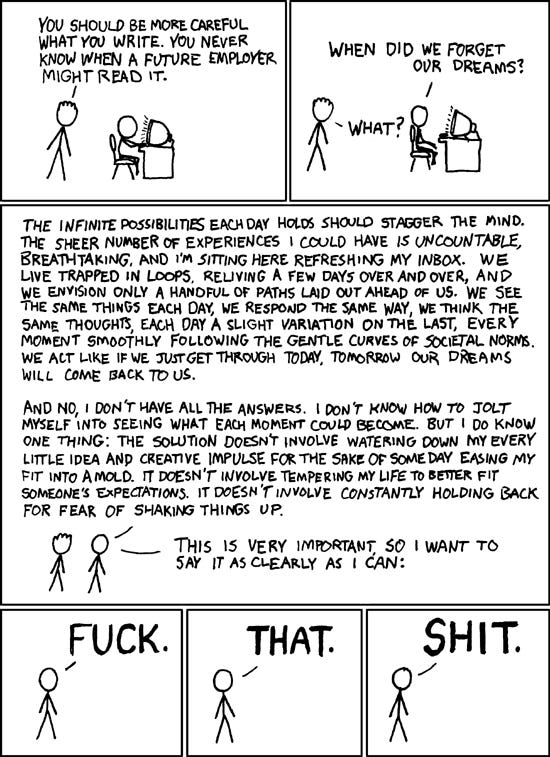On “Feeling Like” a New Yorker
What it means to feel like a New Yorker, and the times I feel (and don't feel) like one

The joke goes like this:
Q: How do you know if someone’s a New Yorker?
A: Don’t worry, they’ll tell you.
For me, the joke is a reminder that being a New Yorker is not a universal goal or compliment. In actual conversations where I’m out of town and meeting someone for the first time, at first I avoid saying where I live. It can quickly become one of identity. Some people have strong feelings and bizarre assumptions about New York City, and I don’t want to be stereotyped. Of course, sometimes it comes up quickly whether I like it or not. “Where are you from?” is one of the most basic questions to ask when meeting someone from out of town.
With that in mind, I’ve been asked before if I “feel like a New Yorker,” and for anyone interested, in this article I try to answer it.
Writing about Feelings
First off, these kinds of blogs, the ones that aren’t made up of lists, terrify me. They make me feel vulnerable. Even if I’m but a few bits among all the data of the internet, I’m still permanently there. Another goddamn natural language sample to feed the AI monster.
I’ve cited xkcd as a source of inspiration before, and here again one of Randall Munroe’s comics is partly what convinced me to write this down. (It’s an early and remarkably wordy comic, too. I’m sorry, but let’s face it, that’s pretty on brand for me.)
What Makes a “New Yorker?”
I really don’t think there’s a simple definition of what makes someone a New Yorker. You don’t have to be born here. There’s no required duration of stay. Over time, I’ve met the gamut:
People who just moved here and immediately said they “felt like a New Yorker.”
People who were born here, lived here for decades, eventually left, and said they “never felt like a New Yorker.”
In searching for events each month for the Blankman List, there is this spectrum that emerges. On one extreme are the extra-uber-mega-shows, like the events at Madison Square Garden or Radio City Music Hall. I have gone to plenty of events like these, but I can’t quite say I feel like a New Yorker there. I feel like a tourist, and sometimes it’s wonderful and empowering to feel like a tourist in your own city. It’s like I emerged out of the subway right into a vacation destination and with expert knowledge on how to avoid crowds and get back home.
On the other extreme are events in quaint neighborhoods in the outer boroughs. Community theaters, local restaurants, and the like. Sometimes I find myself at one of those events, and I don’t really feel like a New Yorker there either. I feel like I’m visiting a community that hopefully welcomes me but isn’t my home. The feeling is a bit warmer when it’s my local neighborhood, but even then, I’m reminded of how few of my neighbors I actually know and still feel a little out of place.
Nevertheless I do feel that New York City, which is as much place as idea, is my home right now. I don’t like leaving it. Whenever I travel, whether for work or leisure, I find it excruciating. I hate the hours and hours and hours of sitting and waiting. The delays, the crying babies, the angry adults. Gross, makeshift meals. Cars that make me nauseous. Planes that make my ears hurt. I miss my husband and my cat. (Not always in that order.)
There is one place, however, where I do feel like a New Yorker. Every time. Riding a cab home from the airport. There’s a moment when the taxi driver is crossing the Kosciuszko Bridge and I look to my right and—bam. The Manhattan skyline. An entire world in a few dozen square miles. The traveling is done. Home. My home.

But Is It Walkable?
Then there are times I’m not in New York and something happens to cause me to “feel like a New Yorker.” A common one is I’m at, say, a friend’s home or a hotel room and look up where I’m supposed to go next. My phone shows me the destination is a mile or so away. Totally manageable walking distance. All of a sudden I’m playing real-world Frogger across eight lanes of traffic between a field that hasn’t been mowed in a decade and an office park with a long abandoned donut shop. I’m the only person in that town without a car it seems, and not even the corner grocery store is walkable.
Another common phenomenon: I’m in a new city and situate myself in a coffee shop. I want to sip my coffee, doom-scroll for a bit, and read my book, then suddenly: “Cold day today! What brings you here?” Oh, right. People talk to strangers here. I’m not antisocial and will converse back—often answering the inevitable question, “So where are you from?”1 I really don’t believe that NYC residents are rude, at least not on average. It’s just that for many of us, walking the streets and riding the subways is our version of being in a car, i.e., a space to be focused on where we’re going and largely unconcerned with whatever’s happening around us. I guess I don’t trust your average stranger here, but I don’t distrust them either. I let them be.
The city as an idea is often politicized, and I’m not blind to an online discourse where people are falsely told that being in NYC is “like being in a war zone.”2 It is not even remotely a war zone; crime has in fact been declining for decades.3 But it is not remotely a utopia either. If a tourist walks from a Broadway theater to the Metropolitan Museum of Art, a roughly 2.5-mile, well-trodden, and generally pleasant hike, they may see 30 Rock, the MoMA, the Plaza hotel, and Central Park. They may also encounter people who beg for money, haven’t bathed in weeks, or rudely blast music in public, possibly all at once. These aren’t easy encounters. My heart hurts often among these streets. I have felt afraid before, and I have felt my skin thicken over time.

An Infinitely Fruitful Backdrop
But being afraid is not unique to New York City. Fear can come from cars, from strangers; it can come from wide, open spaces far from NYC. And for every negative experience one has here, the city will make up for it with positive experiences a hundred times over. In Amy Poehler’s recent podcast episode with Abbi Jacobson and Ilana Glazer (the co-stars and co-creators of Broad City), Glazer describes NYC as an “infinitely fruitful backdrop for the craziest shit to happen.”
Making these lists every month has painted a lot of backdrops for me. I end up going to a fair share of these events myself, although not necessarily on the day that they’re listed. Here are the events that I’ve both listed and attended since May.
Baseball Cards from the Collection of Jefferson R. Burdick (The Met)
Woolf Works (American Ballet Theater)
Antony and Cleopatra (Metropolitan Opera)
Real life is of course not a perpetual comedy show, so included among the “craziest shit” I saw was a Met Opera audience member secretly filming and a free children’s book from the Brooklyn Book Bodega on butts. I also saw constant reminders of why I love calling this city home. On the way to see baseball cards, I passed an Ancient Egyptian temple. Before volunteering, I ate Jewish comfort food while my husband ate a Colombian meal, both in the same dining space. During the Pride March, I saw trans people being celebrated, not stripped of rights. This is a city of culture and of inclusion.
I don’t know if I “feel like” a New Yorker. I reflexively wince at basically any label. New Yorkers are supposedly brash, resilient, and fast-paced (to name a few stereotypes), and that’s not necessarily me. I am more than whatever presuppositions the label carries! But I do feel like NYC offers me an “infinitely fruitful backdrop” for, well, my life. At least for now, this city feels like home.
Every time I type an em dash, I immediately wonder if I’ll get accused of using AI. Let it be known that I genuinely love punctuation, something I alluded to in another footnote in my 2024 year in review. I’ve been typing em and en dashes since before I even used a Mac and needed to memorize PC alt codes. The Wikipedia article on the dash is a real masterpiece that gets into all of the written grammatical edge cases and explains other English dashes, like the quotation dash—which I almost used for the “Don’t worry, they’ll tell you” joke. (Also, unlike ChatGPT and as evidenced in the previous sentence, I like the aesthetic of the Chicago Manual style, where there’s no space before or after an em dash.)
Broockman, David, and Joshua Kalla. “The impacts of selective partisan media exposure: A field experiment with Fox News viewers.” OSF Preprints 1 (2022). See Additional Appendix Figures and Tables, Figure OA19.
See, for example, Understanding New York’s Crime Drop by Richard Rosenfeld, Karen Terry, and Preeti Chauhan. Unfortunately, a crime drop is of course different from crime elimination. As I write this, the city’s reeling from a gunman who killed four people in Midtown yesterday. I offer no excuses for this kind of cruelty, but it is still empirically true that crime is overall down in NYC. Sadly, gun violence is a significant nationwide issue, although it’s one where NYC is in fact among the statistically safest.

